- Home
- Nora Roberts
Midnight Bayou
Midnight Bayou Read online
Prologue
Death, with all its cruel beauty, lived in the bayou. Its shadows ran deep. Cloaked by them, a whisper in the marsh grass or rushes, in the tangled trap of the kudzu, meant life, or fresh death. Its breath was thick and green, and its eyes gleamed yellow in the dark.
Silent as a snake, its river swam a sinuous line—black water under a fat white moon where the cypress knees broke the surface like bones piercing skin.
Through the dark, moon-dappled water, the long, knobby length of an alligator carved with barely a ripple. Like a secret, its threat was silent. When it struck, its tail whipping a triumphant slice through the water, when it clamped the unwary muskrat in its killing jaws, the bayou echoed with a single short scream.
And the gator sank deep to the muddy bottom with its prey.
Others had known the cruel, silent depths of that river. Knew, even in the vicious summer heat, it was cold, cold.
Vast with secrets, the bayou was never quite still. In the night, under a high hunter’s moon, death was busy. Mosquitoes, voracious vampires of the swamp, whined in a jubilant cloud of greed. Players of the marsh music, they blended with the buzzes, hums and drips that were punctuated by the shocked squeals of the hunted.
In the high limbs of a live oak, shadowed by moss and leaves, an owl hooted its two mournful notes. Alerted, a marsh rabbit ran for his life.
A breeze stirred the air, then was gone, like the single sigh of a ghost.
The owl swooped from its perch with a swift spread of wings.
Near the river, while the owl dived and the rabbit died, an old gray house with a swaying dock slept in shadows. Beyond, rising over a long, lush spread of grass, a great white manor stood watchful in the moonlight.
Between them, teeming with life, vigorous with death, the bayou laid its line.
1
Manet Hall, Louisiana
December 30, 1899
The baby was crying. Abigail heard it in dreams, the soft, unsettled whimper, the stirring of tiny limbs under soft blankets. She felt the first pangs of hunger, a yearning in the belly, almost as if the child were still inside her. Her milk came down before she was fully awake.
She rose quickly and without fuss. It gave her such pleasure—that overfull sensation in her breasts, the tenderness of them. The purpose of them. Her baby needed and she would provide.
She crossed to the recamier, lifted the white robe draped over its back. She drew in the scent of the hothouse lilies—her favorite—spearing out of a crystal vase that had been a wedding present.
Before Lucian, she’d been content to tuck wildflowers into bottles.
If Lucian had been home, he would have woken as well. Though she would have smiled, have stroked a hand over his silky blond hair as she told him to stay, to sleep, he would have wandered up to the nursery before she’d finished Marie Rose’s midnight feeding.
She missed him—another ache in the belly. But as she slipped into her night wrapper, she remembered he would be back the next day. She would start watching for him in the morning, waiting to see him come galloping down the allée of oaks.
No matter what anyone thought or said, she would run out to meet him. Her heart would leap, oh, it always leaped, when he sprang down from his horse and lifted her off her feet into his arms.
And at the New Year’s ball, they would dance.
She hummed to herself as she lit a candle, shielding it with her hand as she moved to the bedroom door, out into the corridor of the great house where she had once been servant and was now, well, if not daughter of the house at least the wife of its son.
The nursery was on the third floor of the family wing. That was a battle she’d fought with Lucian’s mother, and lost. Josephine Manet had definite rules about behavior, domestic arrangements, traditions. Madame Josephine, Abigail thought as she moved quickly and quietly past the other bedroom doors, had definite ideas on everything. Certainly that a three-month-old baby belonged in the nursery, under the care of a nursemaid, and not in a cradle tucked into the corner of her parents’ bedroom.
Candlelight flickered and flew against the walls as Abigail climbed the narrowing stairs. At least she’d managed to keep Marie Rose with her for six weeks. And had used the cradle that was part of her own family’s traditions. It had been carved by her grand-père. Her own mother had slept in it, then had tucked Abigail in it seventeen years later.
Marie Rose had spent her first nights in that old cradle, a tiny angel with her doting and nervous parents close at hand.
Her daughter would respect her father’s family and their ways. But Abigail was determined that her child would also respect her mother’s family, and learn their ways.
Josephine had complained about the baby, about the homemade cradle, so constantly that she and Lucian had given in. It was, Lucian said, the way water wears at rock. It never ceases, so the rock gives way or wears down.
The baby spent her nights in the nursery now, in the crib made in France, where Manet babies had slept for a century.
It was a proper if not cozy arrangement, Abby comforted herself. Her petite Rose was a Manet. She would be a lady.
And as Madame Josephine had pointed out, again and again, other members of the household were not to have their sleep disturbed by fretful cries. However such matters were done in the bayou, here in Manet Hall, children were tended in the nursery.
How her lips curled when she said it. Bayou—as if it were a word to be spoken only in brothels and bars.
It didn’t matter that Madame Josephine hated her, that Monsieur Henri ignored her. It didn’t matter that Julian looked at her the way no man should look at his brother’s wife.
Lucian loved her.
Nor did it matter that Marie Rose slept in the nursery. Whether they were separated by a floor or a continent, she felt Marie Rose’s needs as she felt her own. The bond was so strong, so true, it could never be broken.
Madame Josephine may win battles, but Abigail knew she herself had won the war. She had Lucian and Marie Rose.
There were candles glowing in the nursery. Claudine, the nursemaid, didn’t trust the gaslight. She already held Marie Rose and was trying to quiet her with a sugar tit, but the baby’s fists were shaking, little balls of rage.
“Such a temper she has.” Abigail set the candle down and was laughing as she crossed the room, her arms already outstretched.
“Knows what she wants, and when she wants it.” Claudine, a pretty Cajun with sleepy dark eyes, gave the baby a quick cuddle, then passed her off. “She hardly made a fuss yet. Don’t know how you hear her way off downstairs.”
“I hear her in my heart. There now, bébé. Maman’s here.”
“Diaper’s wet.”
“I’ll change her.” Abigail rubbed her cheek on the baby’s and smiled. Claudine was a friend—a battle won. Having her established in the nursery, in the household, gave Abigail comfort and the companionship none of Lucian’s family would offer her.
“Go on back to bed. Once she’s nursed, she’ll sleep till morning.”
“Good as gold, she is.” Claudine brushed fingertips over Marie Rose’s curly hair. “If you don’t need me, maybe I’ll take a walk down to the river. Jasper, he’s gonna be there.” Her dark eyes lit. “I told him maybe, if I can get away, I come down around midnight.”
“You oughta make that boy marry you, chère.”
“Oh, I’m gonna. Maybe I run down for an hour or two, if you don’t mind, Abby.”
“I don’t mind, but you be careful you don’t catch nothing more than some crawfish. Anything more,” she corrected as she prepared to change Marie Rose’s soiled linen.
“Don’t you worry. I’ll be back before two.” She started out through the connecting door and glanced back. �
��Abby? You ever think, when we were kids, that you’d be mistress of this house one day?”
“I’m not mistress here.” She tickled the baby’s toes and had Marie Rose gurgling. “And the one who is’ll probably live to a hundred and ten off of spite just to make sure I never am.”
“If anybody could, it’d be that one. But you will be, one day. You fell into the luck, Abby, and it looks real fine on you.”
Alone with the baby, Abby tickled and cooed. She powdered and smoothed, then tidily fastened the fresh diaper. When Marie Rose was tucked into a fresh gown and swaddled, Abby settled in the rocker, bared her breast for that tiny, hungry mouth. Those first greedy tugs, the answering pull in her womb, made her sigh. Yes, she’d fallen into the luck. Because Lucian Manet, the heir of Manet Hall, the shining knight of every fairy tale, had looked at her. And loved.
She bent her head to watch the baby nurse. Marie Rose’s eyes were wide open, fixed on her mother’s face. A tiny crease of concentration formed between her eyebrows.
Oh, she had such hope those eyes would stay blue, like Lucian’s. The baby’s hair was dark like her own. Dark and curling, but her skin was milk white—again like her papa’s rather than the deeper tone, the dusky gold of her Cajun mama’s.
She would have the best of both of them, Abby thought. She would have the best of everything.
It wasn’t only the money, the grand house, the social position, though she wanted that for her children now that she had tasted it herself. It was the acceptance, the learning, the knowing you belonged in such a place. Her daughter, and all the children who came after, would read and write, would speak proper English, proper French, in fine voices.
No one would ever look down on them.
“You’ll be a lady,” Abigail murmured, stroking the baby’s cheek as Marie Rose’s hand kneaded her breast as if to hurry the milk along. “An educated lady with your papa’s sweet heart and your mama’s good sense. Papa’ll be home tomorrow. It’s the very last day of a whole century, and you have your whole life to live in it.”
Her voice was quiet, a singsong rhythm to lull both of them.
“It’s so exciting, Rosie, my Rosie. We’re going to have a grand ball tomorrow night. I have a new gown. It’s blue, like your eyes. Like your papa’s eyes. Did I tell you I fell in love with his eyes first? So beautiful. So kind. When he came back to Manet Hall from the university, he looked like a prince coming home to his castle. Oh, my heart just pounded so.”
She leaned back, rocking in the fluttering light of the candles.
She thought of the New Year’s celebration the next evening, and how she would dance with Lucian, how her gown would sweep and swirl as they waltzed.
How she would make him proud.
And she remembered the first time they had waltzed.
In the spring, with the air heavy with perfume from the flowers, and the house alight like a palace. She’d sneaked into the garden, away from her duties, because she’d wanted to see it so much. The way the gleaming white hall with its balusters like black lace stood against the starry sky, the way the windows flamed. Music had spilled out of those windows, out of the gallery doors where guests had stepped out for air.
She’d imagined herself inside the ballroom, whirling, whirling, to the music. And so had whirled in the shadows of the garden. And, whirling, had seen Lucian watching her on the path.
Her own fairy tale, Abby thought. The prince taking Cinderella’s hand and drawing her into a dance moments before midnight struck. She’d had no glass slipper, no pumpkin coach, but the night had turned into magic.
She could still hear the way the music had floated out through the balcony doors, over the air, into the garden.
“After the ball is over, after the break of morn . . .”
She sang the refrain quietly, shifting the baby to her other breast.
“After the dancers leaving, after the stars are gone . . .”
They had danced to that lovely, sad song in the moonlit garden with the house a regal white and gold shadow behind them. Her in her simple cotton dress, and Lucian in his handsome evening clothes. And as such things were possible in fairy tales, they fell in love during that lovely, sad song.
Oh, she knew it had started before that night. For her it had begun with her first glimpse of him, astride the chestnut mare he’d ridden from New Orleans to the plantation. The way the sun had beamed through the leaves and the moss on the live oaks along the allée, surrounding him like angel wings. His twin had ridden beside him—Julian—but she’d seen only Lucian.
She’d been in the house only a few weeks then, taken on as an undermaid and doing her best to please Monsieur and Madame Manet so she might keep her position and the wages earned.
He’d spoken to her—kindly, correctly—if they passed each other in the house. But she’d sensed him watching her. Not the way Julian watched, not with hot eyes and a smirk twisting his lips. But, she liked to think now, with a kind of longing.
In the weeks that went by she would come upon him often. He’d sought her out. She knew that now, prized that now, as he’d confessed it to her on their wedding night.
But it had really begun the evening of the ball. After the song had ended, he’d held her, just a moment longer. Then he bowed, as a gentleman bows to a lady. He kissed her hand.
Then, just as she thought it was over, that the magic would dim, he tucked the hand he’d kissed into the crook of his arm. Began to walk with her, to talk with her. The weather, the flowers, the gossip of the household.
As if they were friends, Abby thought now with a smile. As if it were the most natural thing in the world for Lucian Manet to take a turn in the garden with Abigail Rouse.
They’d walked in the garden many nights after that. Inside the house, where others could see, they remained master and servant. But all through that heady spring they walked the garden paths as young lovers, telling each other of hopes, of dreams, of sorrows and joys.
On her seventeenth birthday he brought her a gift, wrapped in silver paper with a bright blue bow. The enameled watch was a pretty circle dangling from the golden wings of a brooch. Time flew, he told her as he pinned the watch to the faded cotton of her dress, when they were together. And he would rather have his life wing by than spend it apart from her.
He’d gotten down on one knee and asked her to be his wife.
It could never be. Oh, she’d tried to tell him through the tears. He was beyond her reach, and he could have anyone.
She remembered now how he’d laughed, how the joy had burst over his beautiful face. How could he be beyond her reach when she had his hand in hers even now? And if he could have anyone, then he would have her.
“So now we have each other, and you,” Abby whispered and shifted the drowsing baby to her shoulder. “And if his family hates me for it, what does it matter? I make him happy.”
She turned her face into the soft curve of the baby’s neck. “I’m learning to speak as they speak, to dress as they dress. I will never think as they think, but for Lucian, I behave as they behave, at least when it shows.”
Content, she rubbed the baby’s back and continued to rock. But when she heard the heavy footsteps on the stairs, the stumbling climb, she rose quickly. Her arms tightened in a circle of protection around the baby as she turned toward the crib.
She heard Julian come through the door and knew without seeing he would be drunk. He was nearly always drunk or on his way to becoming so.
Abby didn’t speak. She lay the baby in the crib, and when Marie Rose whimpered restlessly, stroked her quiet again.
“Where’s the nursemaid?” he demanded.
Still, Abby didn’t turn. “I don’t want you in here when you’ve been drinking.”
“Giving orders now?” His voice was slurred, his balance impaired. But he was thinking clearly enough. Liquor, he’d always believed, helped clarify the mind.
And his was clarified when it came to his brother’s wife. If Lucian had a th
ing—and what was a woman but a thing?—Julian wanted it.
She was small, almost delicate of build. But she had good strong legs. He could see the shape of them where the firelight in the nursery grate shimmered through her thin nightclothes. Those legs would wrap around him as easily as they did his brother.
Her breasts were high and full, fuller now since she’d had the whelp. He’d gotten his hands on them once, and she’d slapped him for it. As if she had a say in who touched her.
He closed the door at his back. The whore he’d bought that night had only whetted his appetite. It was time to sate it.
“Where’s the other bayou slut?”
Abby’s hand fisted at her side. She turned now, guarding the crib with her body. He looked so like Lucian, but there was a hardness in him Lucian lacked. A darkness.

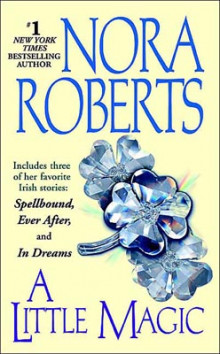 A Little Magic
A Little Magic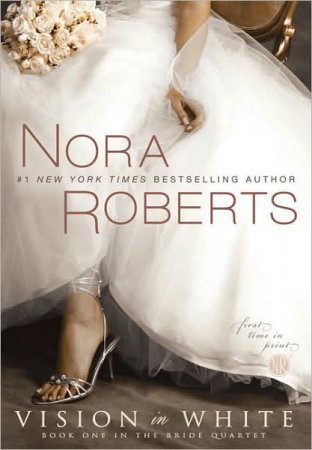 Vision in White
Vision in White True Betrayals
True Betrayals The Next Always
The Next Always A Man for Amanda
A Man for Amanda Born in Fire
Born in Fire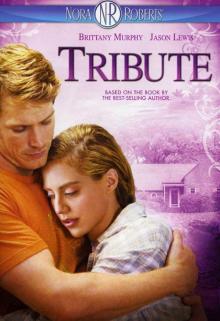 Tribute
Tribute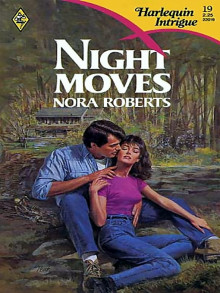 Night Moves
Night Moves Dance Upon the Air
Dance Upon the Air The Name of the Game
The Name of the Game Jewels of the Sun
Jewels of the Sun River's End
River's End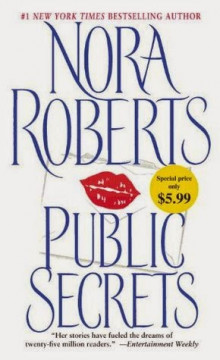 Public Secrets
Public Secrets Homeport
Homeport Private Scandals
Private Scandals The Witness
The Witness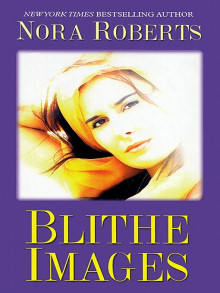 Blithe Images
Blithe Images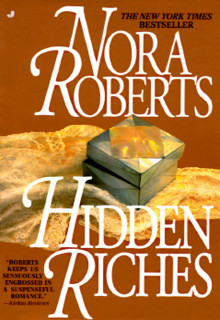 Hidden Riches
Hidden Riches Key of Light
Key of Light Divine Evil
Divine Evil High Noon
High Noon Blue Dahlia
Blue Dahlia Sea Swept
Sea Swept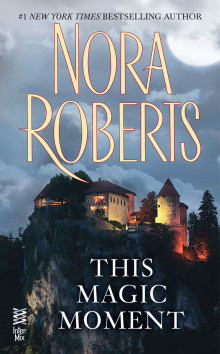 This Magic Moment
This Magic Moment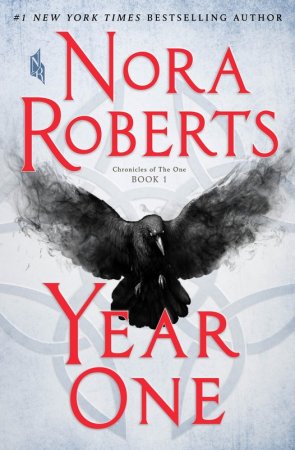 Year One
Year One A Little Fate
A Little Fate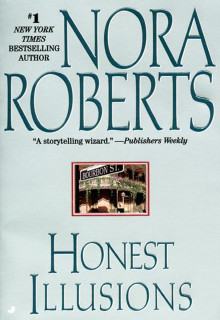 Honest Illusions
Honest Illusions The Reef
The Reef Shelter in Place
Shelter in Place The Hollow
The Hollow Holding the Dream
Holding the Dream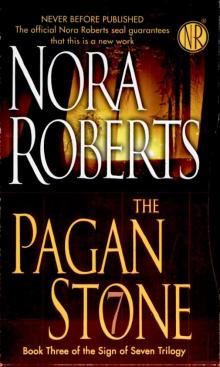 The Pagan Stone
The Pagan Stone Savour the Moment
Savour the Moment The Perfect Hope
The Perfect Hope Island of Glass
Island of Glass Happy Ever After
Happy Ever After Bed of Roses
Bed of Roses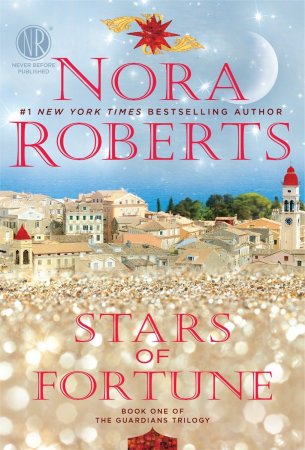 Stars of Fortune
Stars of Fortune Dark Witch
Dark Witch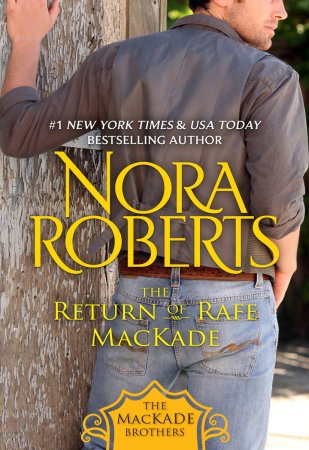 The Return of Rafe MacKade
The Return of Rafe MacKade Chesapeake Blue
Chesapeake Blue The Perfect Neighbor
The Perfect Neighbor The Collector
The Collector Come Sundown
Come Sundown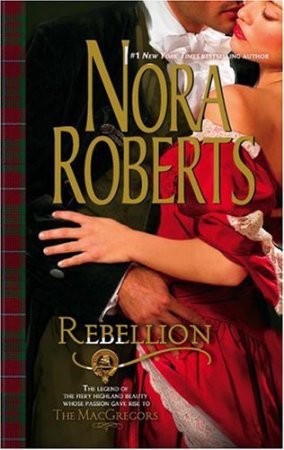 Rebellion
Rebellion Affaire Royale
Affaire Royale Daring to Dream
Daring to Dream Bay of Sighs
Bay of Sighs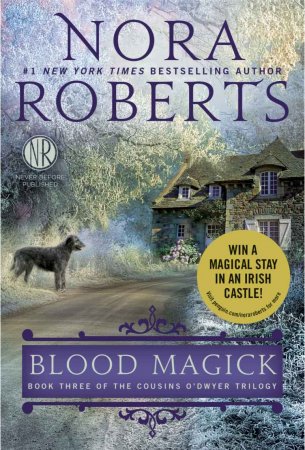 Blood Magick
Blood Magick Angels Fall
Angels Fall Captivated
Captivated The Last Boyfriend
The Last Boyfriend Irish Thoroughbred
Irish Thoroughbred Inner Harbor
Inner Harbor The Right Path
The Right Path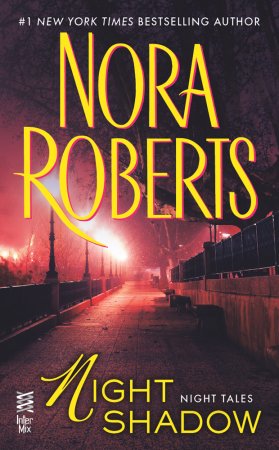 Night Shadow
Night Shadow The Heart of Devin MacKade
The Heart of Devin MacKade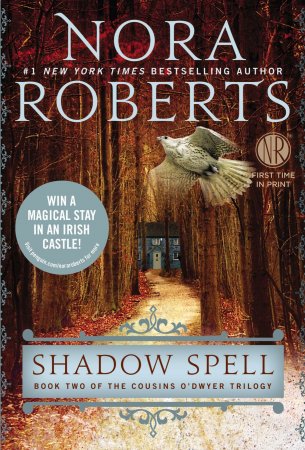 Shadow Spell
Shadow Spell The Playboy Prince
The Playboy Prince The Fall of Shane MacKade
The Fall of Shane MacKade Rising Tides
Rising Tides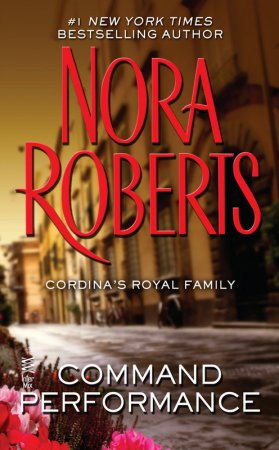 Command Performance
Command Performance Hidden Star
Hidden Star Cordina's Crown Jewel
Cordina's Crown Jewel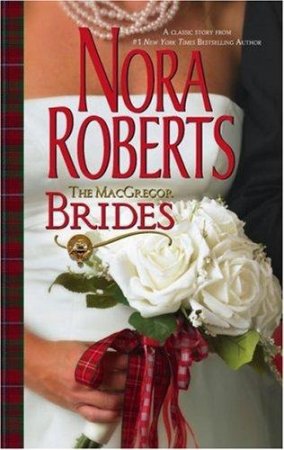 The MacGregor Brides
The MacGregor Brides The Pride of Jared MacKade
The Pride of Jared MacKade Born in Ice
Born in Ice Whiskey Beach
Whiskey Beach The Last Honest Woman
The Last Honest Woman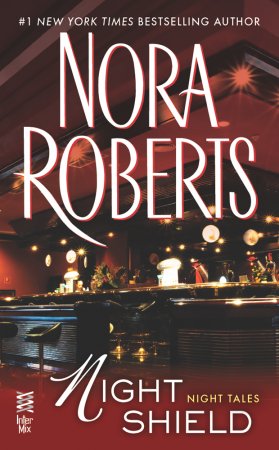 Night Shield
Night Shield Born in Shame
Born in Shame Secret Star
Secret Star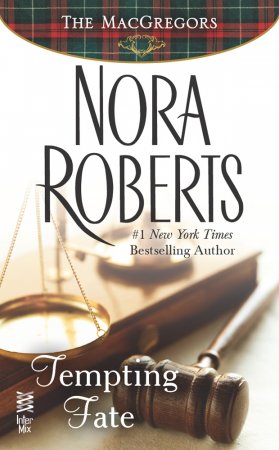 Tempting Fate
Tempting Fate Nightshade
Nightshade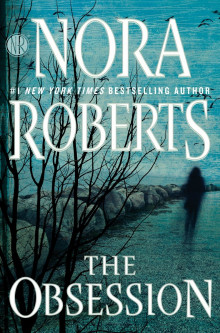 The Obsession
The Obsession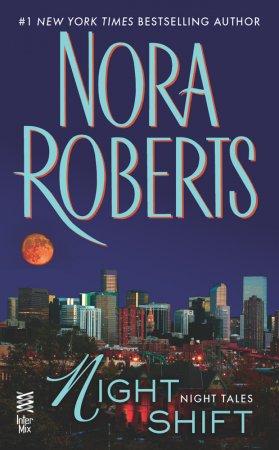 Night Shift
Night Shift Playing The Odds
Playing The Odds Tears of the Moon
Tears of the Moon One Man's Art
One Man's Art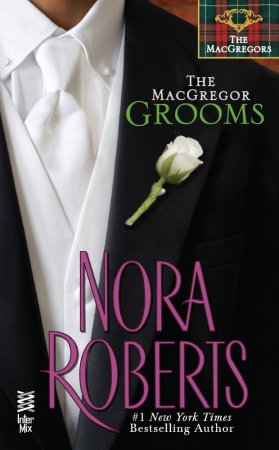 The MacGregor Groom
The MacGregor Groom Irish Rebel
Irish Rebel Morrigan's Cross
Morrigan's Cross In From The Cold
In From The Cold Night Smoke
Night Smoke Finding the Dream
Finding the Dream Red Lily
Red Lily The Liar
The Liar Montana Sky
Montana Sky Heart of the Sea
Heart of the Sea All The Possibilities
All The Possibilities Opposites Attract
Opposites Attract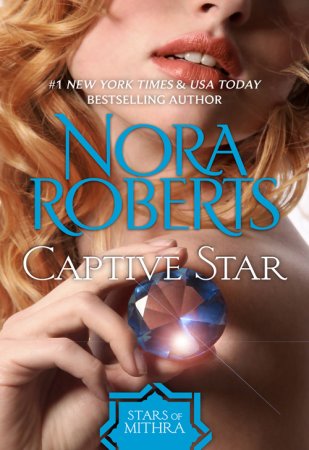 Captive Star
Captive Star The Winning Hand
The Winning Hand Key of Valor
Key of Valor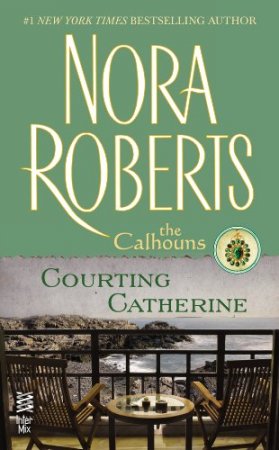 Courting Catherine
Courting Catherine Heaven and Earth
Heaven and Earth Face the Fire
Face the Fire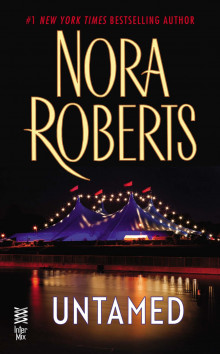 Untamed
Untamed Skin Deep
Skin Deep Enchanted
Enchanted Song of the West
Song of the West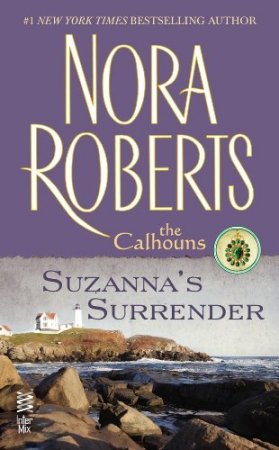 Suzanna's Surrender
Suzanna's Surrender Entranced
Entranced Dance of the Gods
Dance of the Gods Key of Knowledge
Key of Knowledge Charmed
Charmed For Now, Forever
For Now, Forever Blood Brothers
Blood Brothers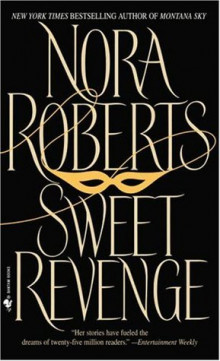 Sweet Revenge
Sweet Revenge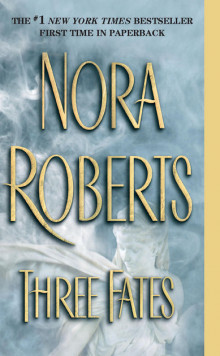 Three Fates
Three Fates Mind Over Matter
Mind Over Matter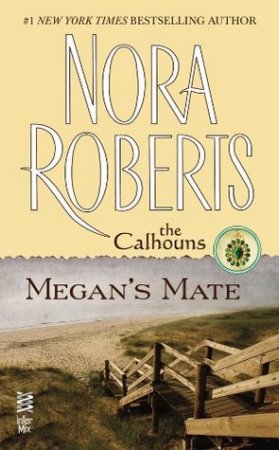 Megan's Mate
Megan's Mate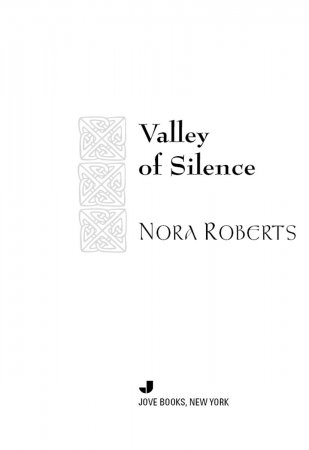 Valley of Silence
Valley of Silence Without A Trace
Without A Trace The Law is a Lady
The Law is a Lady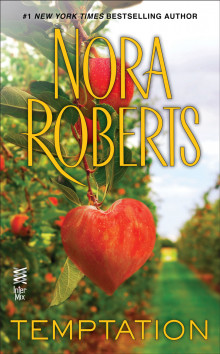 Temptation
Temptation Dance to the Piper
Dance to the Piper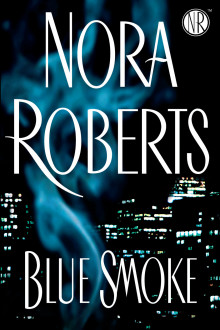 Blue Smoke
Blue Smoke Black Hills
Black Hills The Heart's Victory
The Heart's Victory Sullivan's Woman
Sullivan's Woman Genuine Lies
Genuine Lies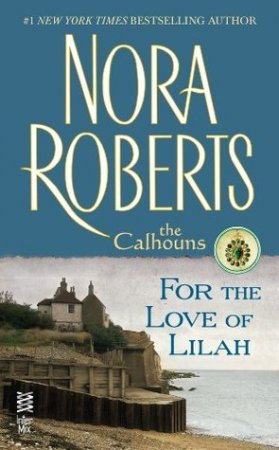 For the Love of Lilah
For the Love of Lilah Gabriel's Angel
Gabriel's Angel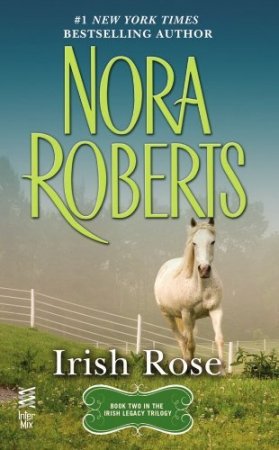 Irish Rose
Irish Rose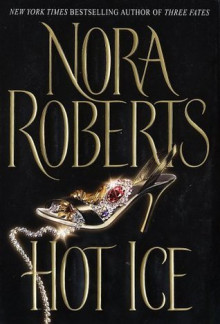 Hot Ice
Hot Ice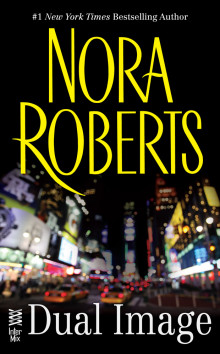 Dual Image
Dual Image Lawless
Lawless Catch My Heart
Catch My Heart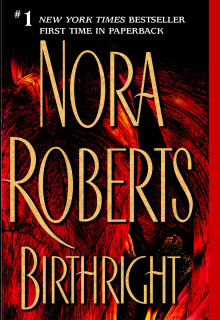 Birthright
Birthright First Impressions
First Impressions Chasing Fire
Chasing Fire Carnal Innocence
Carnal Innocence Best Laid Plans
Best Laid Plans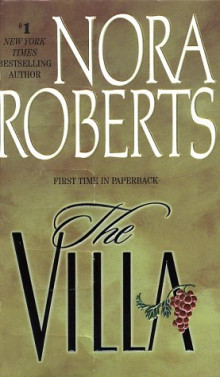 The Villa
The Villa Northern Lights
Northern Lights Local Hero
Local Hero Island of Flowers
Island of Flowers The Welcoming
The Welcoming All I Want for Christmas
All I Want for Christmas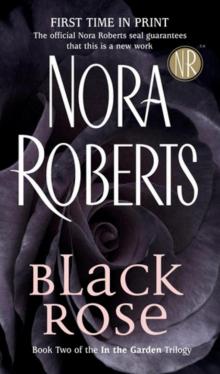 Black Rose
Black Rose Hot Rocks
Hot Rocks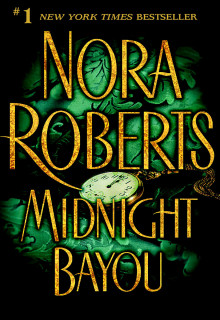 Midnight Bayou
Midnight Bayou The Art of Deception
The Art of Deception From This Day
From This Day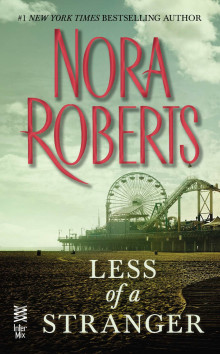 Less of a Stranger
Less of a Stranger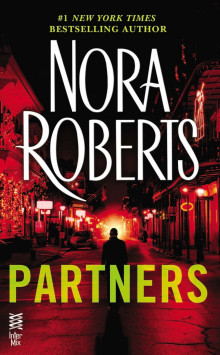 Partners
Partners Storm Warning
Storm Warning Once More With Feeling
Once More With Feeling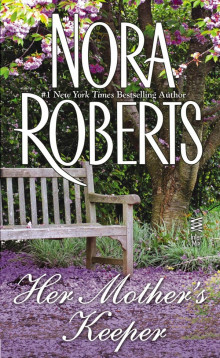 Her Mother's Keeper
Her Mother's Keeper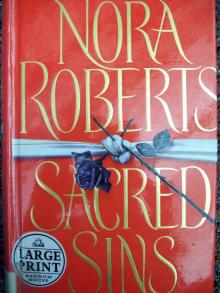 Sacred Sins
Sacred Sins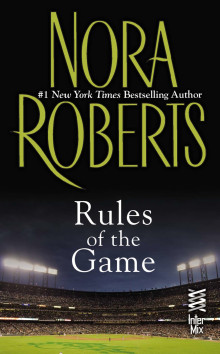 Rules of the Game
Rules of the Game Sanctuary
Sanctuary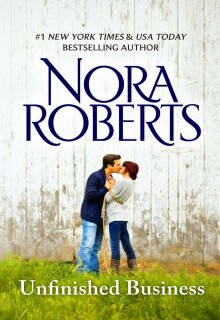 Unfinished Business
Unfinished Business Cordina's Royal Family Collection
Cordina's Royal Family Collection Dangerous Embrace
Dangerous Embrace One Summer
One Summer The Best Mistake
The Best Mistake Boundary Lines
Boundary Lines Under Currents
Under Currents The Stanislaski Series Collection, Volume 1
The Stanislaski Series Collection, Volume 1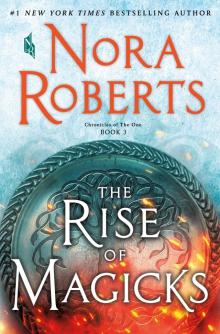 The Rise of Magicks
The Rise of Magicks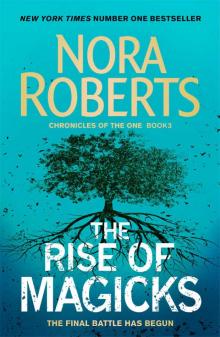 The Rise of Magicks (Chronicles of The One)
The Rise of Magicks (Chronicles of The One) The Awakening: The Dragon Heart Legacy Book 1
The Awakening: The Dragon Heart Legacy Book 1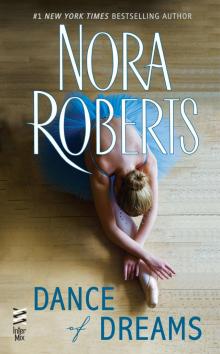 Dance of Dreams
Dance of Dreams Skin Deep: The O'Hurleys
Skin Deep: The O'Hurleys The Quinn Legacy: Inner Harbor ; Chesapeake Blue
The Quinn Legacy: Inner Harbor ; Chesapeake Blue![[Chronicles of the One 03.0] The Rise of Magicks Read online](http://i1.bookreadfree.com/11/chronicles_of_the_one_03_0_the_rise_of_magicks_preview.jpg) [Chronicles of the One 03.0] The Rise of Magicks
[Chronicles of the One 03.0] The Rise of Magicks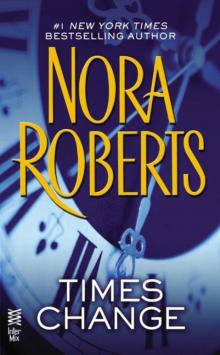 Times Change
Times Change Dance to the Piper: The O'Hurleys
Dance to the Piper: The O'Hurleys Christmas In the Snow: Taming Natasha / Considering Kate
Christmas In the Snow: Taming Natasha / Considering Kate Waiting for Nick
Waiting for Nick Summer Desserts
Summer Desserts Dream 2 - Holding the Dream
Dream 2 - Holding the Dream The Novels of Nora Roberts, Volume 2
The Novels of Nora Roberts, Volume 2 In the Garden Trilogy
In the Garden Trilogy Eight Classic Nora Roberts Romantic Suspense Novels
Eight Classic Nora Roberts Romantic Suspense Novels Best Laid Plans jh-2
Best Laid Plans jh-2 From the Heart
From the Heart Holiday Wishes
Holiday Wishes Dream 1 - Daring to Dream
Dream 1 - Daring to Dream Second Nature
Second Nature Summer Pleasures
Summer Pleasures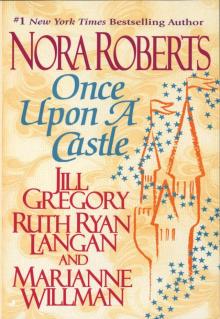 Once Upon a Castle
Once Upon a Castle Stars of Mithra Box Set: Captive StarHidden StarSecret Star
Stars of Mithra Box Set: Captive StarHidden StarSecret Star Impulse
Impulse The Irish Trilogy by Nora Roberts
The Irish Trilogy by Nora Roberts The Pride Of Jared Mackade tmb-2
The Pride Of Jared Mackade tmb-2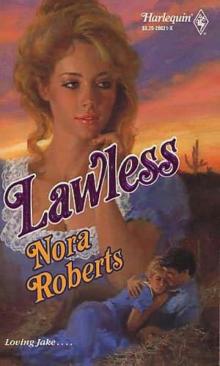 Lawless jh-3
Lawless jh-3 Taming Natasha
Taming Natasha Endless Summer
Endless Summer Bride Quartet Collection
Bride Quartet Collection Happy Ever After tbq-4
Happy Ever After tbq-4 Heart Of The Sea goa-3
Heart Of The Sea goa-3 Search for Love
Search for Love Once upon a Dream
Once upon a Dream Once Upon a Star
Once Upon a Star Dream Trilogy
Dream Trilogy Risky Business
Risky Business The Novels of Nora Roberts, Volume 3
The Novels of Nora Roberts, Volume 3 Dream 3 - Finding the Dream
Dream 3 - Finding the Dream Promises in Death id-34
Promises in Death id-34 The Novels of Nora Roberts, Volume 4
The Novels of Nora Roberts, Volume 4 The Perfect Hope ib-3
The Perfect Hope ib-3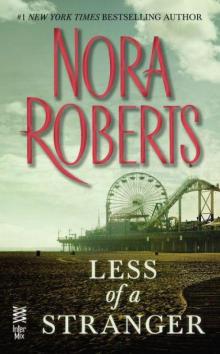 Less than a Stranger
Less than a Stranger Savour the Moment: Now the Big Day Has Finally Arrived, It's Time To...
Savour the Moment: Now the Big Day Has Finally Arrived, It's Time To... Convincing Alex
Convincing Alex Bed of Roses tbq-2
Bed of Roses tbq-2 Savour the Moment tbq-3
Savour the Moment tbq-3 Lessons Learned
Lessons Learned Key Of Valor k-3
Key Of Valor k-3 Red lily gt-3
Red lily gt-3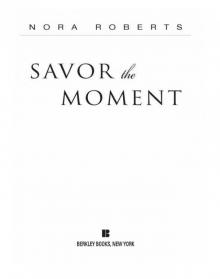 Savor the Moment
Savor the Moment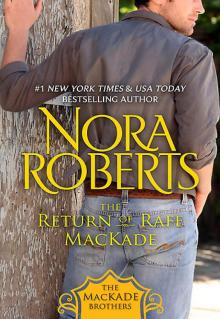 The Return Of Rafe Mackade tmb-1
The Return Of Rafe Mackade tmb-1 For The Love Of Lilah tcw-3
For The Love Of Lilah tcw-3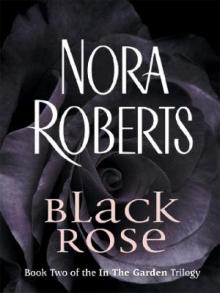 Black Rose gt-2
Black Rose gt-2 Novels: The Law is a Lady
Novels: The Law is a Lady Chesapeake Bay Saga 1-4
Chesapeake Bay Saga 1-4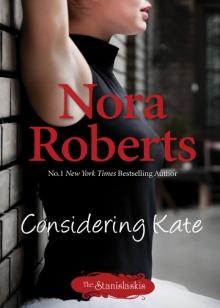 Considering Kate
Considering Kate Moon Shadows
Moon Shadows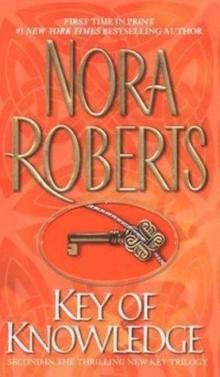 Key of Knowledge k-2
Key of Knowledge k-2 The Sign of Seven Trilogy
The Sign of Seven Trilogy Once Upon a Kiss
Once Upon a Kiss The Novels of Nora Roberts, Volume 5
The Novels of Nora Roberts, Volume 5 Suzanna's Surrender tcw-4
Suzanna's Surrender tcw-4 The Quinn Brothers
The Quinn Brothers Falling for Rachel
Falling for Rachel Brazen Virtue
Brazen Virtue Time Was
Time Was The Gallaghers of Ardmore Trilogy
The Gallaghers of Ardmore Trilogy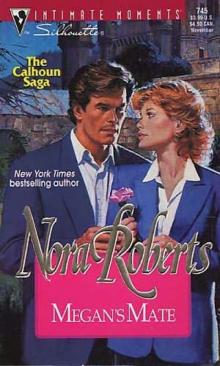 Megan's Mate tcw-5
Megan's Mate tcw-5 Loving Jack jh-1
Loving Jack jh-1 Rebellion & In From The Cold
Rebellion & In From The Cold Blue Dahlia gt-1
Blue Dahlia gt-1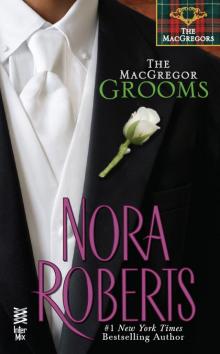 The MacGregor Grooms
The MacGregor Grooms The Next Always tibt-1
The Next Always tibt-1 The Heart Of Devin Mackade tmb-3
The Heart Of Devin Mackade tmb-3 The Novels of Nora Roberts Volume 1
The Novels of Nora Roberts Volume 1 Treasures Lost, Treasures Found
Treasures Lost, Treasures Found Nora Roberts's Circle Trilogy
Nora Roberts's Circle Trilogy The Key Trilogy
The Key Trilogy The Fall Of Shane Mackade tmb-4
The Fall Of Shane Mackade tmb-4 A Will And A Way
A Will And A Way Jewels of the Sun goa-1
Jewels of the Sun goa-1 Luring a Lady
Luring a Lady